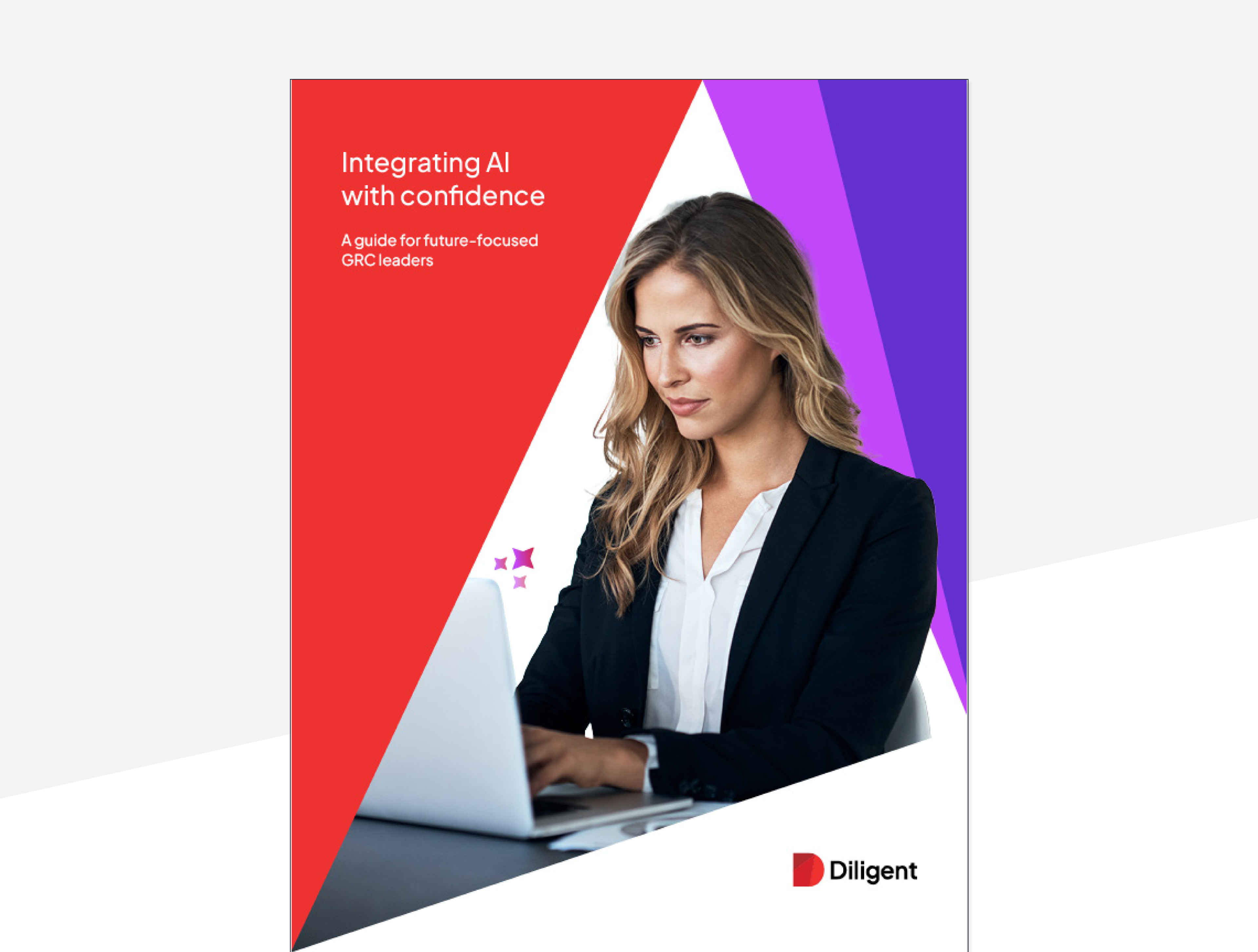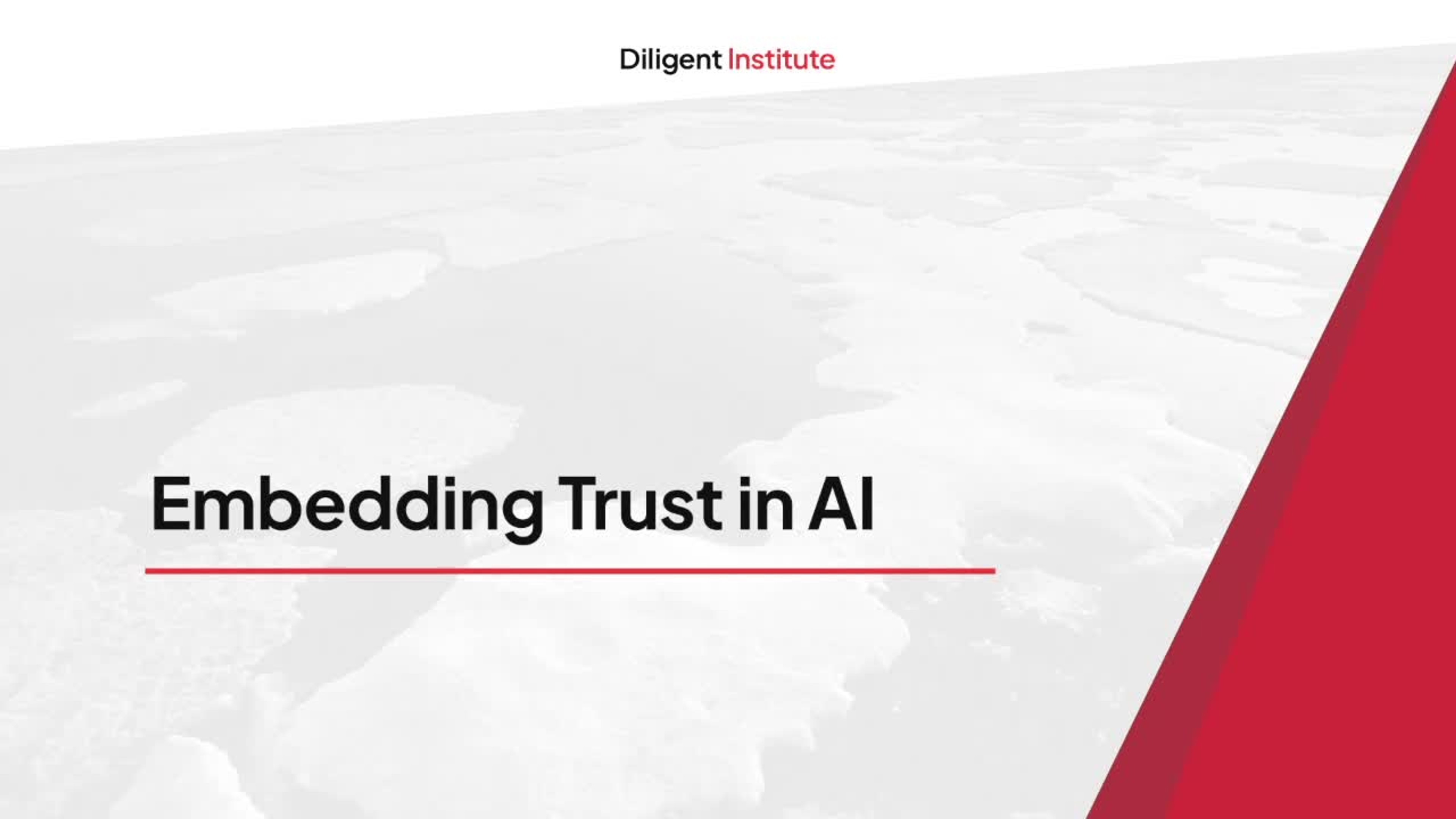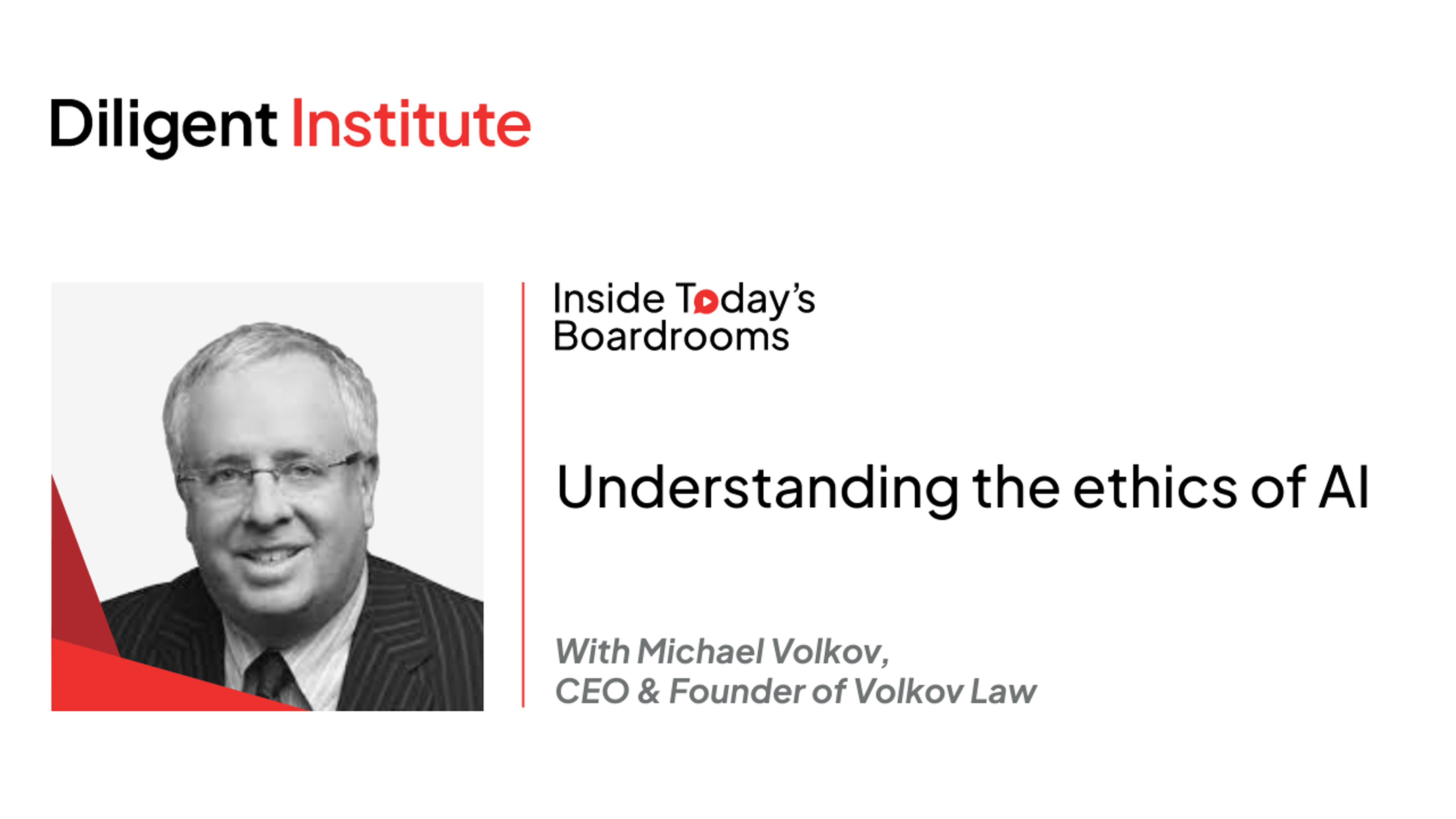How AI can strengthen corporate governance

Excerpted from Education & Templates Library course "An Introduction to AI in Governance."
AI can play a significant role in strengthening corporate governance processes for boards and practitioners alike by improving oversight, transparency and responsiveness across various roles. By helping standardize processes, automate tasks and support decision-making, AI tools can help business leaders collaborate and work together efficiently, driving organizational success.
The benefits of AI implementation in governance
Implementing AI in governance processes can benefit organizations in several ways (Excerpted from “Advantages and Challenges of AI in Companies,” Esade):
- Process automation: One of the biggest benefits of AI is the automation of repetitive tasks. This not only increases operational efficiency but also frees up employees to focus on more strategic and creative tasks.
- Improved decision-making: AI can analyze large amounts of data in real time, providing valuable insights for informed decision-making.
- Efficiency and cost reduction: The implementation of AI can reduce operating costs by optimizing processes and minimizing human error.
One key area in which AI can strengthen corporate governance is through risk identification and management. AI tools can monitor vast amounts of internal and external data to detect early warning signs of compliance issues, financial irregularities or reputational threats. This allows boards and leadership teams to proactively address potential problems before they escalate, strengthening the organization’s risk posture and regulatory adherence.
AI tools can also offer value through strengthening transparency and accountability. AI can track governance-related actions, monitor key metrics and surface actionable insights, helping business leaders stay ahead of evolving risks and trends and log core governance processes.
AI also boosts efficiency and accuracy in governance workflows. It can automate routine tasks, such as preparing board materials, summarizing meeting minutes and tracking compliance deadlines, reducing administrative load and minimizing human error. This allows governance professionals, including corporate secretaries and legal teams, to focus on higher-value tasks, such as advising on strategy and managing board relations. By integrating AI into corporate governance, organizations can create more adaptive, data-driven and resilient systems of oversight that are better equipped to navigate complexity and deliver long-term value.
Challenges surrounding AI implementation in governance
AI has become a revolutionary power across various industries, offering significant improvements in efficiency, decision-making and strategic management. However, this accelerated and widespread use of AI can also present challenges for organizations, as outlined in the flip cards below.
- Data quality and integrity: AI systems rely on accurate, complete, and well-structured data. Many organizations struggle with fragmented, inconsistent, or siloed data, which can undermine AI effectiveness.
- Lack of AI literacy: Board members and executives may lack understanding of AI capabilities, limitations, and risks, making it difficult to evaluate or trust AI-generated insights in governance contexts.
- Adoption and integration: The adoption of AI requires a commitment to innovation and learning and a willingness to invest in this technology and train team members. A structured implementation strategy may be required to overcome obstacles and clearly delineate steps to full implementation.
- Security and confidentiality: Ensuring AI systems meet high standards of cybersecurity and data protection is critical. Failure to do so can result in legal liabilities and reputational damage.
Before implementing AI into corporate governance processes, organizations will benefit from ensuring they have robust guardrails, policies, and processes in place to ensure AI use is responsible and ethical, as well as to ensure AI systems are trustworthy and secure. This is typically managed by the Chief Technology Officer (CTO), board ethics or risk committees, and legal teams.
Enhance your AI proficiency with Diligent's Education & Templates Library
Diligent's Education & Templates Library features curated libraries of eLearning courses, certifications, templates and videos on key GRC topics, including AI governance, risk management and ethics. Explore and learn as the Diligent Education & Templates Library continues to grow, ensuring the latest insights and guidance.
More to explore

Integrating AI with confidence: A guide for future-focused GRC leaders
Learn how to ask the right questions, choose secure technology and ramp up efficiency and innovation with our nine-page guide to AI-powered GRC technology.

Embedding Trust in AI
From Diligent’s Education & Templates Library: Explore how Dominique Shelton Leipzig, Founder & CEO of Global Data Innovation, empowers boards and executives with the TRUST AI framework — an ethical guide to building trustworthy AI models.

Understanding the ethics of AI
Explore the AI ethical landscape, risks, and opportunities in business. Michael Volkov, CEO of Volkov Law, discusses in Inside Today's Boardrooms.